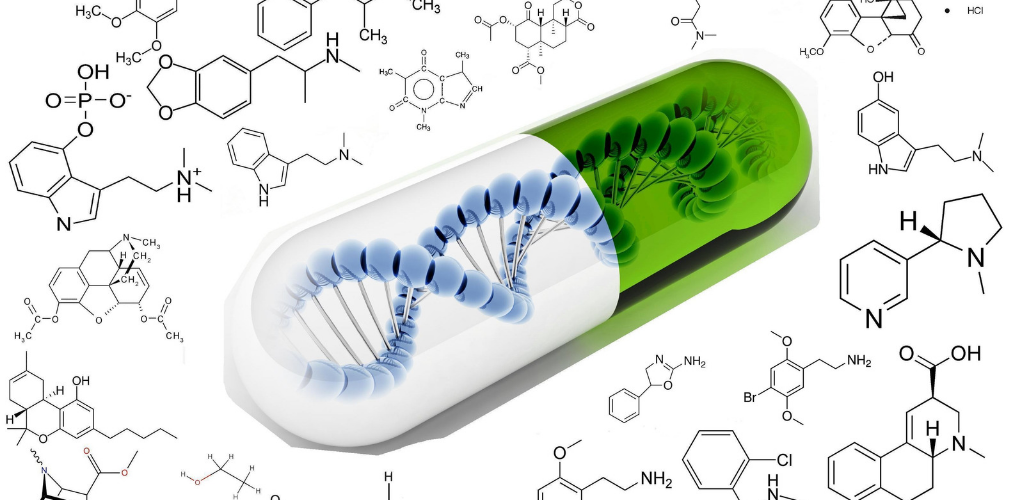In a world where one-size-fits-all approaches dominate, understanding the intricate relationship between your genes and your response to food can unlock the door to a personalised and effective approach to nutrition. Your genetic code, a unique blueprint passed down through generations, plays a pivotal role in determining how your body processes and reacts to the food you consume. Let’s delve into the fascinating realm of nutrigenomics and explore how your genes shape your dietary destiny.
The Genetic Landscape of Food Response
Our genes are like the architects of our bodies, dictating how our cells function and respond to external stimuli, including the food we eat. The field of nutrigenomics investigates the interplay between nutrition and genetics, shedding light on how our individual genetic makeup influences our metabolism, nutrient absorption, and overall response to different types of food.
Understanding Nutrigenomics:
At the core of nutrigenomics is the idea that no two individuals are the same when it comes to nutrition. Genetic variations, known as single nucleotide polymorphisms (SNPs), can significantly impact how our bodies interact with specific nutrients. For instance, variations in genes related to carbohydrate metabolism may influence whether an individual is more predisposed to efficiently process sugars or if they are prone to insulin resistance.
Genes in the Kitchen: Tailoring Your Diet
Imagine having a dietary plan tailored specifically to your genetic makeup. Advances in genetic testing now make it possible to identify key genetic markers that can inform personalized nutrition recommendations. By analyzing your DNA, experts can uncover insights into how your body processes fats, carbohydrates, and proteins, offering guidance on the ideal balance of macronutrients for your genetic profile.
The Fat Gene and Beyond
One of the well-studied genes in the context of nutrition is FTO, often dubbed the “fat gene.” Variations in the FTO gene have been linked to an increased predisposition to obesity. Understanding this genetic predisposition allows individuals to adopt dietary strategies that focus on mitigating this risk, such as emphasizing whole foods and a balanced diet rich in nutrients.
Genetic Influences on Taste Preferences and Cravings
The Sweet Tooth Gene:
Ever wondered why some individuals have an insatiable sweet tooth while others lean toward savory delights? The answer may lie in genetics. TAS1R2 and TAS1R3 are two genes associated with sweet taste perception. Variations in these genes can impact an individual’s sensitivity to sweetness, influencing their overall preference for sugary foods. Armed with this knowledge, individuals can make informed choices about managing sugar intake based on their genetic predisposition.
Cravings Unveiled:
Cravings are not merely a lack of willpower; they can be deeply rooted in our genetic code. The MC4R gene, for example, has been linked to increased cravings for high-calorie foods. Recognizing these genetic influences empowers individuals to adopt strategies that address the root cause of cravings, leading to more sustainable and effective approaches to weight management.
Genetic Responses to Dietary Challenges
Gluten Sensitivity and Celiac Disease:
Genetic factors also play a crucial role in how our bodies respond to specific dietary challenges. Take gluten sensitivity and celiac disease, for example. Variations in the HLA-DQ genes are associated with an increased risk of gluten-related disorders. Identifying these genetic markers can guide individuals toward gluten-free dietary choices, promoting digestive health and overall well-being.
Lactose Intolerance Genes:
Similarly, lactose intolerance is influenced by genetic factors. Variations in the LCT gene impact an individual’s ability to digest lactose, the sugar found in milk and dairy products. Understanding one’s genetic predisposition to lactose intolerance allows for the customization of dietary choices, ensuring optimal nutrient intake without the discomfort associated with lactose intolerance.
The Future of Personalized Nutrition
As our understanding of nutrigenomics deepens, the future holds exciting possibilities for personalized nutrition. Imagine a world where dietary recommendations are tailored not only to an individual’s genetic code but also consider factors like gut microbiome composition and lifestyle. This holistic approach to personalized nutrition has the potential to revolutionize the way we approach health and well-being.
In conclusion, your genes wield a powerful influence over your response to food, from taste preferences to metabolic processes. Embracing the knowledge provided by nutrigenomics allows you to embark on a journey toward a more personalized and effective approach to nutrition. By decoding your genetic tapestry, you can unlock the secrets to optimal well-being, paving the way for a healthier and more fulfilling life.





Thanks for sharing. I read many of your blog posts, cool, your blog is very good.